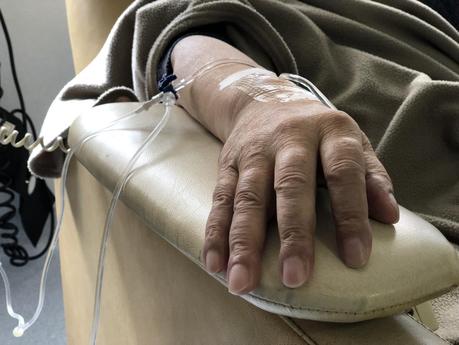
It is important to remember that each patient's journey with cancer will be different.
Cancer Centers defines here that cancer is abnormal cell growth within the human body. So can you survive this abnormal growth?
While some people will have an easy recovery from a cancer diagnosis, another person can struggle for a lifetime with that same exact type of cancer.
One of the most frequently asked questions from cancer patients is what their prognosis is and the likely hood they will survive it. While nothing in the medial world is ever 100% certain, it is possible to make educated guesses based on research and statistics that have been conducted.
How do they determine the survival rates of cancer?
Researchers based cancer survival rates on research that has been gathered from thousands of patients with that same type of cancer. The broad survival rate includes all variables-including your age, ethnicity, underlying health issues, and stage the cancer was detected. However, these survival rates do not normally tend to differentiate patients who have completely recovered, and people still undergoing cancer treatment.
There are two more specific types of cancer survival rates that are also assessed:
- Disease-free survival rate: this would be similar to what we would define as the recovery rate. This percentage indicates the number of people who show absolutely zero traces of cancer remaining in their bodies after undergoing cancer treatment.
- Progression-free survival rate: this statistic is a bit broader, as it captures two types of cancer patients. One is patients who have undergone treatment and not had cancer come back. The second are patients who still have cancer but it is not getting any worse.
What are cancer survival rates good for?
While cancer survival rates are not able to 100% give you an accurate prediction of how your journey with cancer will play out, it will assist you in developing a treatment plan and things that you can personally control to help mitigate the spread. Survival rates often show a great snapshot of how different treatment options have worked for others and the likelihood it would work for you as well. But at the end of the day, it is important to remember these are just generalizations. Because survival rates can not guarantee anything, it is important to have an open and honest discussion with your doctor to determine what the best route for you personally is.
Do you need to consider cancer survival rates?
Like any other statistic, there are always outliers! And there have been plenty of scenarios in which cancer patients have proven that they do not fit into the generalized statistic of a certain type of survival rate for cancer. So while it is important to understand, you do not have to determine how your own cancer journey will play out based on these numbers. You can go after cancer with the mindset that you will instead defy the odds-and is something that numerous cancer patients have successfully done.
What can you do to increase your survival rate odds?
While there is no magic pill or vaccine that prevents you from getting cancer, there are some things you can control to improve your survival rates of cancer. The main one being to detect any symptoms as early as possible! Whether you conduct self-checks or have a doctor routinely do checks for you, playing it safe and ensuring that no cancer cells have formed gives you the best chance at detecting cancer early. And statistically speaking, those that can catch cancer in the beginning stages have a greater chance of recovering and surviving!
So whether or not you choose to take into consideration the survival rates, we encourage you to do your due diligence and get checked to increase your own odds of cancer recovery.
